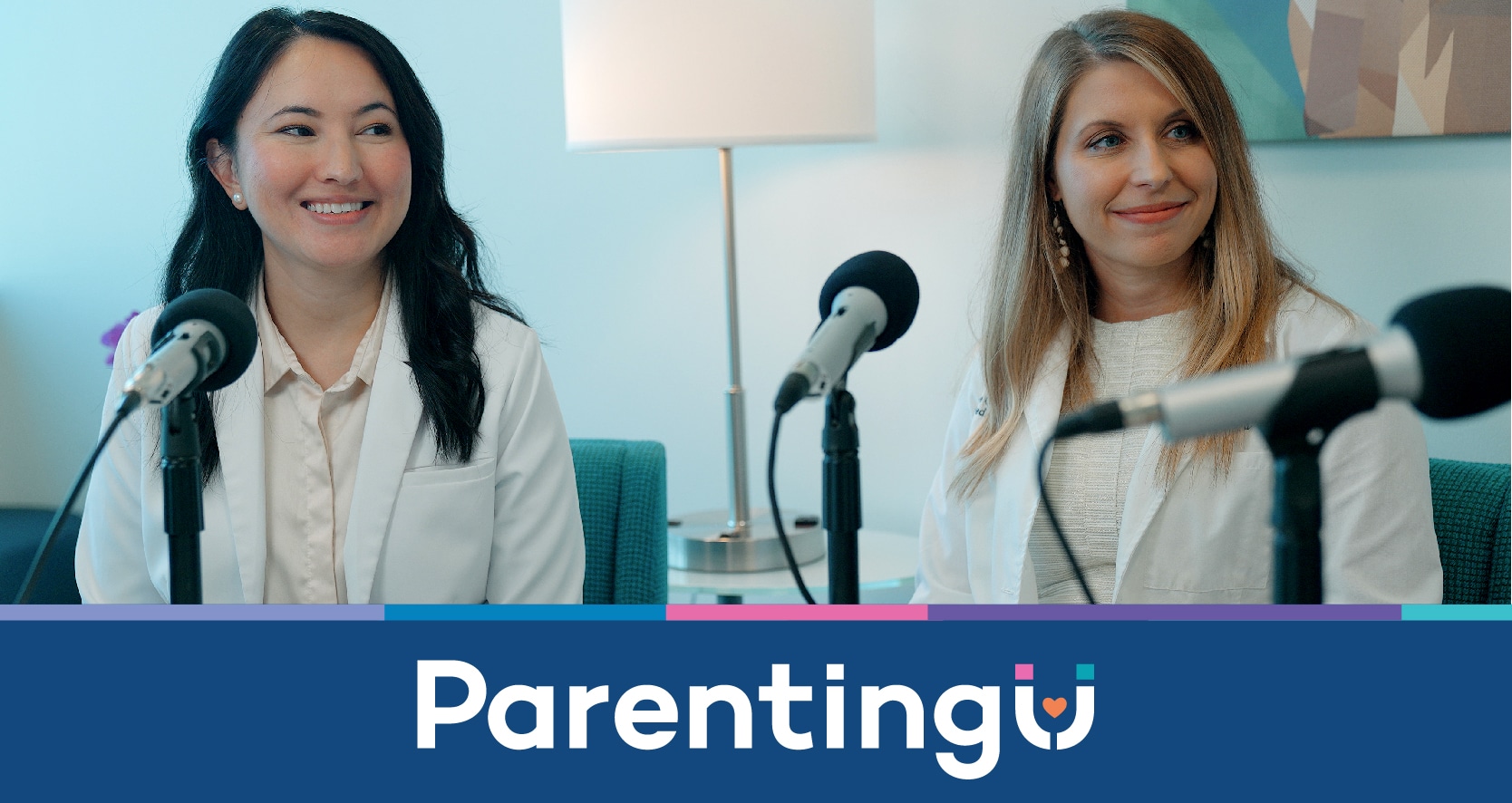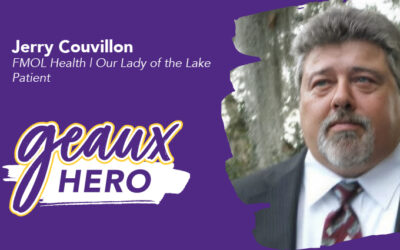The statistics around childhood obesity are stark.
One in seven children aged 10-17 in the United States are obese, according to the National Survey of Children’s Health. Unfortunately, the rates of childhood obesity in Louisiana are worse.
Katie Queen, MD, pediatrician certified in pediatric obesity medicine and medical director at Our Lady of the Lake Children’s Health Weight & Nutrition Center, and Melissa Holland, DO, pediatrician who also sees patients at the Weight & Nutrition Center, share practical information about nutrition, activity, excess weight, and the resources available to tackle this sometimes sensitive and tricky topic in this ParentingU podcast episode.
A goal for our Children’s Health network is to not only provide care for those patients with obesity but also to advocate at the state level to improve access to medication; partner with local, state and national organizations to increase education and understanding within our communities; and work on research studies, including Team Up with Pennington Biomedical Research Center.
More Than Numbers on a Scale
Obesity is a disease of the metabolism, and it impacts every system in the body. There’s a lot of stigma and bias around the word obesity.
When the body has extra fat cells that build up in the body it not only pushes on vital organs it also affects healthy cells. Fat cells themselves secrete hormones that impact metabolism.
A lot of very complex signals travel between brain and stomach to signal hunger and feeling full. For some kids extra fat cells secrete hormones that interfere with those signals. Like a broken thermostat, kids actually feel hungry even after they should feel full.
“It’s not just ‘eat healthier’ or ‘be more active.’ It’s not that simple,” Dr. Queen says. “The disease itself is something we have to address just like we would for a kid with hypertension or high blood pressure or diabetes.”
Weight & Nutrition Center
Our Weight & Nutrition Center, based in Baton Rouge, is a statewide program and part of our Children’s Health advocacy platform focused on reducing childhood obesity in Louisiana.
“We are more than just a clinic,” Dr. Queen says. “When we named the Weight & Nutrition Center we purposefully stayed away from the word obesity.”
Patients from anywhere in Louisiana can receive treatment from the center. In addition to the physical presence in Baton Rouge with Dr. Queen, Dr. Holland, two dietitians and a social worker, the center offers virtual visits and plans to create satellite clinics.
Start With Your Pediatrician
Dr. Queen and Dr. Holland recommend parents who are worried about their child’s weight to start the conversation with their pediatrician. The first steps may be making lifestyle changes at home with a primary care provider’s guidance.
When patients are referred to our Weight & Nutrition Center they will experience a team approach to care, starting with an appointment for Dr. Queen or Dr. Holland to learn about their weight trajectory.
Other treatment approaches include genetic testing, addressing mental health aspects such as cravings and emotional eating, family structures, social stressors, food insecurity, eating habits and physical activity.
Together this allows a deep dive into the issues that may cause obesity. The team listens to what’s going on in the family’s life and creates a plan that works for them.
In addition to lifestyle changes and setting smart goals, medication may be needed. These weight loss medicines can be prescribed starting at age 12, and in some cases younger, and have been approved and shown to affect the actual disease of obesity. In some cases, if lifestyle changes and medicine don’t work patients may be referred for bariatric surgery.
Teaching Nonjudgment
Kids and people come in all shapes and sizes. Our Weight & Nutrition Center is not a weight-loss clinic but emphasizes wanting children to be the healthiest version of themselves.
Dr. Holland recommends starting early with this type of message: “Love your body in every state it’s in because you’re going to be with your body for the rest of your life.”
Making Healthier Choices
Dr. Queen and Dr. Holland don’t recommend a good/bad mindset when approaching food and encourage parents to meal plan with their kids so they get excited about new foods and recipes.
“We don’t want to put judgment on the food,” Dr. Queen says. “Ice cream is not a bad food, but we can’t have it all the time.” Teaching boundaries around food and emphasizing moderation is the best way to approach conversations about food.
Healthy choices and goal setting are a process. Dr. Queen and Dr. Holland recommend starting with one or two goals— such as nutrition, physical activity or sleep—that are measurable. For example if a child drinks five sweetened drinks per day, make a goal to cut down to three. Involving kids in the goal setting to follow their lead will be more successful.
Balance in activity is important too, as the siren signal of screens can be loud for children and parents. Getting outside and active together is always a great option, but families can also turn screentime into active time with fun YouTube videos. Check out our 5-Minute Family Fit Breaks with Adrian, our health educator and group fitness trainer.
Dr. Queen was recently included in a Healthline article about childhood obesity. She also recommends the American Academy of Pediatrics’ parent website, healthychildren.org, as a great resource for evidence-based advice on healthy habits, nutrition, sleep and much more.
If your child is struggling with weight, start the conversation with their pediatrician.
-
Find a pediatric provider in Baton Rouge.
-
Find a pediatric provider in Acadiana.
-
Find a pediatric provider in Northeast Louisiana.
-
Find a pediatric provider in Bogalusa.




